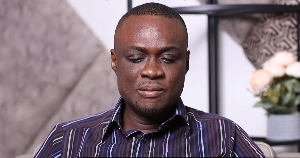By Kwame Okoampa-Ahoofe, Jr., Ph.D.
Nineteen-ninety was an annus mirabilis in a real sense of the expression in global African politics. But a clear hint of this miracle had already found practical expression the year before, with the historic election of Mr. David N. Dinkins as the first African-American mayor in the history of New York City. To be certain, there had been elected for about a couple of decades, or more, quite a remarkable number of African-American mayors in several major American cities. But this was the very first time that it was happening in New York City, the headquarters of the United Nations Organization (UN), arguably the greatest metropolis in the contemporary era.
When the most celebrated postcolonial African political prisoner arrived in New York City for a three-day official visit in 1990, Mayor Dinkins had been in office for just over five months. Nelson Mandela had been out of Cape Town's Pollsmoor Maximum-Security Prison for just four months. And so in a near-Biblical sense, John-The-Baptist could be aptly said to have been preparing the way for the Christ, except that this Christ was not coming from the ancient land of Canaan but, rather, out of the heart of the primeval continent.
Mandela had come from the small village of Mvezo, among the Thembu and Xhosa people of South Africa, and not from Bethlehem or Nazareth. Still, the striking resemblance was unmistakable - for in either case, the messianic figure transcended his humble roots. They were also both global figures in a prophetic sense, and both had been "crucified" for valiantly standing up for the most righteous ideals of humanity, the maximum allowance of material and moral liberation of the mind, body and soul without regard to race, ethnicity or station in life.
I am not hereby, in any way, attempting to blasphemously stake out any inordinate claim to religiosity for The Madiba. Such claim, at any rate, would definitely be beyond my judgment call; such claim categorically belongs to posterity in whose temporally distant and objective judgment I squarely stand to be assayed myself.
In January 1990, I had written and published an article in the New York Amsterdam News vehemently defending Archbishop Desmond Tutu against undeserved vitriolic charges of anti-Semitism by a rabidly Zionist section of the New York City Jewish community. The much-revered Anglican Archbishop of Cape Town had visited Israel during the Christmas season a couple of months prior and strikingly compared the harsh treatment meted the Palestinian Arabs by the Jerusalem/Tel Aviv government, to the equally ham-fisted treatment of indigenous South Africans by the white-racist apartheid regime.
My response was actually directed at the three-term recently ousted New York City mayor Edward I. Koch, who had rhetorically and invidiously implied that Archbishop Tutu was, somehow, playing out of his league. At Mandela's welcome ceremony at City Hall, Mr. Koch would grudgingly commend The Madiba for his yeomanly contribution to the liberation of Black South Africans but, rather unseasonably, albeit not altogether unexpectedly, impugn the moral integrity of Mrs. Winnie Madikizela-Mandela.
The obvious allusion here was, of course, to the widely reported Stompie Moeketsi (aka James Seipei) case. In the latter infamous incident, Mrs. Mandela had been implicated in the admittedly barbaric murder of the 14-year-old African National Congress (ANC) activist who had been suspected of double-crossing hardnosed ANC freedom fighters like the fire-spitting Winnie Mandela, by allegedly serving as an informant to the apartheid police. Mrs. Mandela would subsequently be convicted for kidnapping and being an accessory to the assault and brutal murder of Stompie Moeketsi.
Ed Koch would be mildly booed by some among the City Hall crowd, not because those booing him believed that Mrs. Mandela had done nothing wrong, but primarily because they strongly believed that Mayor Dinkins' predecessor ought to have demonstrated a charitable sense of "class" or dignity, as New Yorkers are wont to say. At any rate, The Madiba's 1990 New York City visit would be epitomized by his historic appearance at a special Ted Koppel-hosted "Nightline" Town-Hall Meeting on the campus of the City College of New York (CCNY).
The ABC-TV program has since been widely described as unarguably one of the finest ever to be produced by American network television. On the program, whose contents are discussed in subsequent segments of this series, The Madiba offered what has been globally acclaimed as the most authoritative definition of responsible and principled leadership.
As I watched South Africa's President Jacob Zuma pathetically flub his lines during the recently massively attended Mandela Memorial Service, held at Johannesburg's First National Bank Stadium (aka FNB Stadium), described as the largest sports arena of its kind on the African continent, with a seating capacity of nearly 100,000 spectators, I could not help but wonder what The Madiba would make of the rash of corruption allegations swirling around this obstreperous polygynist with four cohabiting wives, particularly regarding the implications that both the evidently undisciplined conjugal lifestyle of the South African leader and his widely reported profligacy have for the future development of the continent's political culture.
____________________________________________________________
*Kwame Okoampa-Ahoofe, Jr., Ph.D.
Department of English
Nassau Community College of SUNY
Garden City, New York
Dec. 24, 2013
E-mail: okoampaahoofe@optimum.net
###
Opinions of Saturday, 28 December 2013
Columnist: Okoampa-Ahoofe, Kwame














